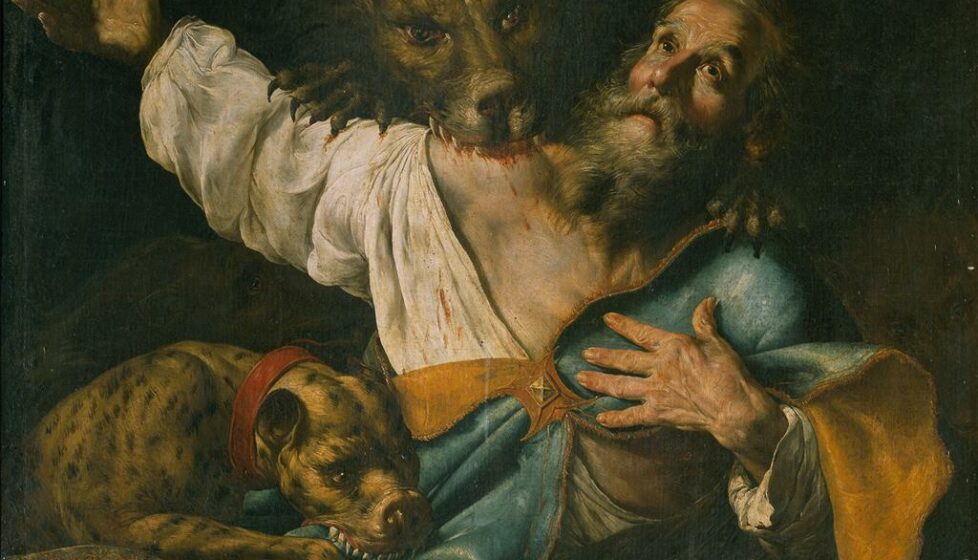Stories of Christian Martyrs: Perpetua, Felicity and Blandina
Rome

Perpetua bravely held Felicity in her arms, anticipating their death
together as sisters in Christ. The bull’s horns had already wounded
Felicity, and the crowd wanted the coup de grace. Then, abruptly
and inexplicably, the bull stood still. The crowd hushed. This animal was
not following the script. Now the crowd let loose with demands for
blood, and gladiators rushed forward to finish the work. Felicity died
quickly. When Perpetua’s executioner hesitated, she herself helped guide
his blade into her body.
The Coliseum had never before seen such a spectacle. Perpetua came
from a wealthy family. Her father was pagan but her mother and brothers were Christians. Perpetua had a nursing baby at the time of her arrest
for confessing Christ. Her father urged her to renounce faith, for his
sake and for her family. Even Roman authorities urged her to offer a
simple sacrifice to Roman power. She refused. She would not renounce
Christ as Lord, claiming that the name that belonged to her was the
name of a Christian.
Felicity was a slave—and pregnant. Since Roman law prohibited
the execution of pregnant women, sentence was delayed. Felicity gave
birth in prison to a baby girl that would be adopted by Christians. When
prison guards wondered how she would handle facing beasts in the
arena, especially so soon after her child’s birth, she responded, “Now
my sufferings are only mine. But when I face the beasts there will be
another who will live in me, and will suffer for me since I shall be suffering for Him.”

These two women from different classes showed fortitude, determination, and, remarkably, even joy at the prospects of public humiliation
and suffering. Several times they refused offers of acquittal and ignored pleas to save themselves. Together they clung to heavenly hope, and to
each other, for endurance through the ordeal. Rather than acquiesce to
Roman demands, they asked to be baptized while in prison. Perpetua
stated, “The dungeon is to me a palace.” Amazingly, when Perpetua was
told beasts would devour her, she and her companions returned to prison
in high spirits at the prospect of death for the glory of God. Three men
imprisoned with them were forced to run the gladiator gauntlet: two
were killed by beasts; one was beheaded.
As for Perpetua, she was the picture of poise in the center of chaos
and blood. When the bull tossed her but did not hurt her, Perpetua’s hair
came undone. She asked to be allowed to put her hair up because undone
hair was a sign of mourning, but this was a day for triumph and joy.
Blandina, a slave girl, was the last to die. She was hanged from a post
and exposed to wild animals, but they would not attack. She was repeatedly tortured and eventually trapped in a net, trampled by a bull. All of the martyrs’ bodies were left unburied and guarded by soldiers.
Such courage made a mark on the Romans. These three women and
Christians had stood together and died together. Several spectators converted to Christianity as a result, including the governor of Rome.
This story is an excerpt from Foxe: Voices of the Martyrs. You can get your own copy free with any donation to The Voice of the Martyrs.

